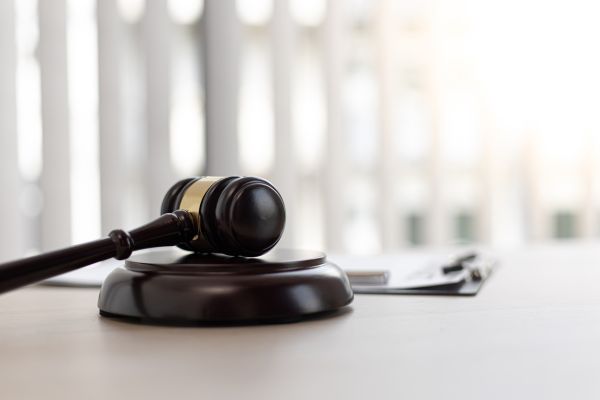Presidential rule and conflicts are not new, especially in Manipur. Since 1950, presidential rule is frequently imposed over Manipur, 10 times as ethnic conflict and political instability continue to challenge its governance.
The ongoing crisis beg for the question: Is presidential rule only option left or there still any alternative path available?
Before delving into whether presidential rule only option left? First, let us discuss Manipur’s geographic demographics.
Manipur, state of India, located in north eastern state, Imphal the capital. Manipur shares the border with Nagaland to north, Assam to west, Mizoram to southwest and by Myanmar (Burma) to south and east. It is mostly made up of two communities: the majority Meitei and the minority Kukis.
Meitei’s being wealthy, politically dominated (Approximately 40 out of the 60 seats in the Manipur State Assembly are held by Meiteis), resides in the valley area of the capital Imphal. They have easy access to agriculture, which is their primary source of income. They have been politically dominant and had an advantage in all desired sectors for more than ten years, including employment, education, and means of subsistence. In contrast, Kukis consisting, 16% of population, regard themselves as schedule tribes.
Manipur: A state in chaos
Manipur remained relatively peaceful until ethnic tensions between the Meiteis and Kukis escalated into large-scale violence.
The conflict between the two inhabitant community marks long back history. The recent conflict traces its origins to the Manipur High Court’s direction to the State to pursue a [i]10-year-old recommendation to grant Scheduled Tribe (ST) status to the non-tribal Meitei community.In a plea to the High Court, Meitei argued that, prior to their 1949 merger of princely Manipur into India, they considered themselves to be schedule tribes. Following the merger, they lost their identity. This move alarmed the Kuki community, as they feared it would dilute their constitutional rights and privileges.
On 3 May 2023, the All Tribals Students Union of Manipur organised the march in opposition to the Manipur High Court’s direction leading to violent clashes.
Escalation of violence
The violence ignited on the large scale, causing the death of inhabitants, forcing 60,000 inhabitants [ii]to displace themselves, several houses, shops, churches, and temple also burnt down, 1700 houses burnt down, inhabitants stealing the ammunition from police station, etc. For months, the state banned internet use in an effort to reduce violence and false information. The most horrifying event was when two Kuki women were sexually assaulted and exhibited nude by a mob, which caused a nationwide uproar. The situation was becoming unmanageable.
Imposition of Presidential rule
Forcible displacement, criminal violence, mass killings, violations of inhabitant’s fundamental rights, including the right to life and personal dignity (Article 21), sexual violence against women , freedom of speech (article 19(1)(a)), right to equality (non-discrimination on basis on caste, religion or community) (article 14) —along with the government’s incapacity to control the escalating conflict and political instability (ruling government being in majority unable to come up an agreement of appointing the new chief minister after the resignation of CM N. Biren Singh[iii]), have contributed to growing demands for the imposition of President’s Rule under Article 356.
Understanding of Presidential rule: article 356
Presidential rule, refers to suspension of state government and its administration by the president on the report of the governor of that state, when the state government is unable to perform or function as per the constitutional provisions. Article 356 deals with the imposition of presidential rule.
Who can impose
President of India, on the report of the governor or otherwise can proclaim.
Grounds for imposition
Since Article 356 doesn’t explicitly state the grounds clearly, it could be abused also. Over the period, judicial precedent plays the role on determining the grounds for the imposition of presidential rule.
- Failure of constitutional machinery in state
- Political instability
- Breakdown of law and order
- Disturbance/ rebellion
Proclamation approval
proclamation must be approved by the parliament within the 2 months.
Duration
It can continue for 6 months for maximum time of 3 years with parliamentary approval every 6 months.
The proclamation can extend beyond 1 year only in case of
- National emergency in effect
- Election commission has declared inability to conduct election.
Effects of presidential rule
- State legislature either stands dissolved or suspended animation (withheld)
- No effect on fundamental rights
- President assumes the executive powers and governs through state governor.
- The union legislature can make law for state and can even pass the state budget.
Is Presidential rule only option left?
B.R Ambedkar considered “Article 356 to remain a dead letter.” He hoped of never been used and remain in dormant unless absolute necessary, as he feared its potential for political misuse.
But today, as Manipur is in state of chaos, Ambedkar’s words echo louder than ever—is the situation now dire enough to awaken this “dead letter”?
For past 2 years, Manipur is been into turmoil due to breakdown of law and order, state government’s inability to control the conflict between the communities, violation of resident’s fundamental right. The state government being in majority still unable to reach agreement on formation of successor chief minister. The state machinery is in disarray, leaving a dangerous power vacuum.
With constitutional governance in freefall, the question remains: Has Manipur reached the point where President’s Rule is the only solution, or is there still room for an alternative path?
Conclusion
It is still up for debate whether the presidential rule is the last resort or if there are alternative path available.
But imposing presidential control, is only a short-term solution to the disruption in Manipur.
To ensure lasting peace, the state government must take certain political measures like some stringent action or law to be implemented or taken in consideration to reconciliate the ethnic groups, measure to be taken to find the middle ground, the government must be politically strong, unlike the recent scenario where ruling government being in majority unable to appoint the successor chief minister, establishing a committee to discuss the situation and offer recommendations, and remaining impartial and not favouring any one ethnic group.
[i] https://www.civilsdaily.com/news/article-355-imposed-in-manipur
[ii] https://www.bbc.com/news/world-asia-india-66260730
[iii] https://www.tribuneindia.com/news/india/presidents-rule-in-manipur-after-2-years-of-ethnic-strife/
Author: Mansi Gupta is a BBA LLB student at Gitarattan International Business School (GGSIPU).






